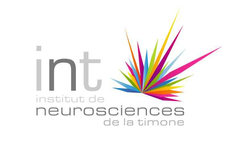The next Monthly Neuroimaging Meeting took place on Thursday 18 April from 10am to 12 noon in the conference room of CERIMED (access map). Program :
- New project : Sina Kling, Uriel Lascombes, Matthias Nau, Guillaume Masson & Martin Szinte (INT)
“DeepMReyeClosed – decoding gaze position in the dark” Download the pdf (33 Mo) - Seminar : Uriel Lascombes, Sina Kling, Guillaume Masson, Martin Szinte (INT)
“Distinct human frontal eye fields unraveled by visual field and oculomotor mapping tasks” Download the pdf (20 Mo)
Abstract : Research on non-human primates has provided valuable insights into the role of the frontal eye fields (FEF) in the processing and generation of saccadic and smooth pursuit eye movements. While the FEF in primates is well-understood, our knowledge of its human homologue remains limited. Previous human studies have primarily focused on localizing the FEF, identifying a large cluster at the intersection of the precentral and superior frontal sulcus. In this study, we employed a comprehensive approach, combining visual field and oculomotor mapping tasks, to unravel the putative homologues of FEF in humans. Using high-field functional MRI during an oculomotor task, we first localized cortical frontal regions involved in generating saccadic and smooth pursuit eye movements in a cohort of 20 participants. Subsequently, we explored the visuospatial characteristics of these regions through population receptive field mapping. Surprisingly, our findings revealed that the previously identified large cluster is, in fact, composed of well-defined visual areas. This challenges the conventional understanding observed in primates, as the human FEF appears to be composed of several distinct visuomotor areas. These results prompt further investigation into the specific functions and characteristics of these individual visuomotor areas within the human FEF. Future studies should aim to unravel their putative functions and determine their specificity, advancing our understanding of the intricate neural mechanisms underlying eye movements in humans.


